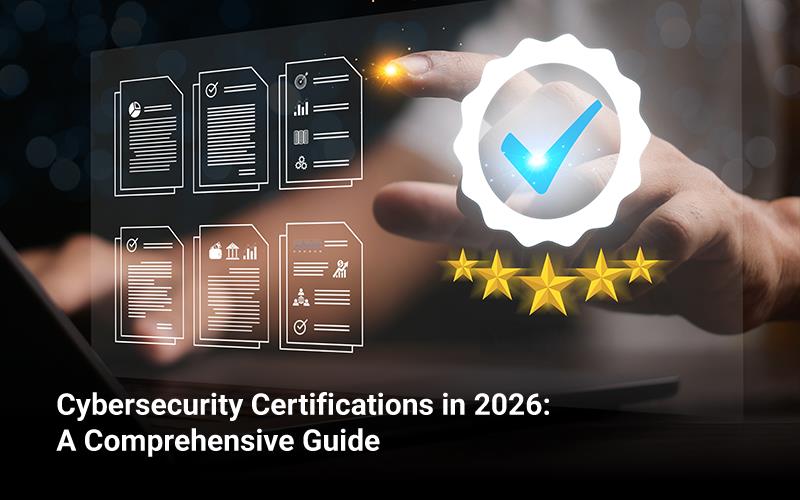Thinking of Using Military Scholarships or GI Bill® Education Benefits?
Here’s the scenario: You’ve dedicated your life so far to serving the nation and are now looking to establish a career in cybersecurity after retiring from the U.S. Military. Under these circumstances, you decide to pursue cybersecurity education as a means of accomplishing your future career goals. You’re eligible for both military scholarships and GI Bill® education benefits, the two primary funding mechanisms that can support your educational endeavors. While these may seem similar, they differ in several ways. Knowing how each works and how to use both together will be a significant advantage as you study for a cybersecurity degree or certifications (for example, at a VA-approved institution such as EC-Council University).
Understanding Military Scholarships and GI Bill® Benefits
Military Scholarships: The term ‘military scholarships’ broadly refers to grants, scholarships, tuition assistance, and other educational awards provided through the U.S. Military, military-affiliated foundations, or specific service branch programs. Active-duty service members, veterans, spouses, or dependents can qualify for eligibility. Military scholarships may cover tuition fees, books, certifications, or specific training courses, and are often competitive or merit-based.
GI Bill® Education Benefits: GI Bill® benefits are educational benefit programs administered by the U.S. Department of Veterans Affairs (VA), such as the Post-9/11 GI Bill® (also called Chapter 33). These benefits help eligible Veterans, service members, and their dependents cover the costs of college, vocational training, certifications, and other educational expenses. According to the VA website, “GI Bill® benefits help you pay for school and cover expenses while you’re training for a job.”
Key Differences Between Military Scholarships and GI Bill® Benefits
These are the most pertinent differences between military scholarships and GI Bill® benefits:
- Source and eligibility
- Military scholarships are typically offered by the U.S. Department of War, individual service branches, military/veteran support foundations, or non-profit organizations. Their eligibility criteria may focus on branch of service, active duty versus veteran status, field of study, GPA, and other factors.
- GI Bill® education benefits come from the VA, and eligibility is based on service-related criteria (dates, type, discharge status, etc.). For example, to use Post-9/11 GI Bill® benefits, you must have qualifying active-duty service on or after September 10, 2001.
- Purpose and timing
- Military scholarships often serve as tuition support or awards for specific academic goals and may be available while you are still serving or as you transition. They can help fill funding gaps or reduce out-of-pocket costs.
- GI Bill® benefits are designed to support your transition from military service to a civilian career by providing structured educational funding (for college, training, certifications) and are often a core component of your education-to-career plan.
- What’s covered, and by how much
- Military scholarships vary widely in funding amounts and what they cover (tuition, books, room and board, certifications). Each award has a unique set of terms, so you’ll have to verify each scholarship’s rules and specifications.
- GI Bill® education benefits come with a more standardized structure. For example, under the Post-9/11 GI Bill®, you may receive coverage for tuition fees (up to defined limits), a books and supplies stipend, and a monthly housing allowance.
- Combining benefits
- A critical question: Can you use military scholarships and your GI Bill® benefits together? The answer is often yes, but you must know how they interact. In some cases, military scholarships reduce the amount the VA pays (if the scholarship covers the exact costs the GI Bill® would cover). It’s essential to consult with your university’s Veterans Enrollment/Services Advisor for a clear understanding.
- GI Bill® benefits also link with other add-ons, for example, the Yellow Ribbon Program for high-tuition schools, or STEM-related benefits if you choose a STEM field like cybersecurity. The VA website also notes further educational benefits, including for certification and licensing tests. Once again, please consult with a Veterans Enrollment/Services Advisor to determine which benefits apply to you.
- Considerations
- There are strings attached when it comes to military scholarships, such as service obligations, minimum GPA, enrollment deadlines, specialized academic majors, renewal conditions, and more.
- On the other hand, to avail GI Bill® benefits, you must attend a VA-approved school/university, you must apply for these benefits, you must verify enrollment in many cases, and depending on your service date, your benefits may expire.
GI Bill® Benefits Should Be the Anchor for Your Cybersecurity Education
Given your intention to become a cybersecurity professional, here’s how GI Bill® benefits can serve as the foundational element of your plan, and how military scholarships can act as powerful support structures:
- Cybersecurity education, whether a bachelor’s degree, master’s degree, or certificate program, typically involves tuition fees, lab fees, certification costs, and possibly relocation or living expenses (if you join an on-campus college). GI Bill® education benefits are dependable, so you can plan your studies with confidence and peace of mind.
- As you prepare to retire from active duty, other education assistance programs may end or change, but not GI Bill® benefits. These benefits assure continuity long after you’ve completed your military service.
- The Post-9/11 GI Bill® provides up to 36 months of entitlement to most eligible veterans, easily covering the duration of a cybersecurity bachelor’s or master’s program.
- Because cybersecurity is widely considered a STEM field, you may qualify for added education benefits (such as the STEM scholarship or additional credit for certification/licensing exams) from the VA.
- Choosing a globally respected, VA-approved institution such as EC-Council University ensures that your education is eligible for GI Bill® funding and aligns with current cybersecurity industry requirements.
- Meanwhile, military scholarships can help minimize cost-of-living expenses, cover additional certification exam fees, or pay for specialized training courses that might be excluded under the terms of GI Bill® education benefits.
Discover the VA-approved cybersecurity programs you can enroll in at EC-Council University.
Steps to Use Military Scholarships and GI Bill® Benefits in Tandem
- Apply for your GI Bill® benefit: Submit your application to the VA as early as possible to receive your GI Bill® Certificate of Eligibility (COE). You can do this via the official VA website.
- Select your cybersecurity program: Join a VA-approved institution like EC-Council University and select a program that aligns with your learning goals (cybersecurity degree or certifications). Confirm the school’s VA approval status and that it accepts GI Bill® funding before you enroll.
- Research and apply for military scholarships: Identify relevant scholarships for veterans, active-duty service members, or military-affiliated students. These can supplement your GI Bill® benefits.
- Coordinate funding with your school’s Veterans/Military Services Office: Many universities have offices or advisors to help you navigate how to combine scholarships with GI Bill® benefits.
- Maximize your benefit usage: If your cybersecurity program has certification exams, lab costs, or special training components, use your GI Bill® benefits for core tuition fees and use scholarships for miscellaneous/additional costs.
- Track your entitlement: With the GI Bill®, you’ll want to know how many months you have left, what you’re using, and how changes (switching to part-time learning, changing to a different program, etc.) may affect your benefits. The official VA website offers tools to help you track entitlements.
EC-Council University Will Help You All the Way
It’s sadly common to see service members and veterans who either under-utilize their GI Bill® benefits, misunderstand how scholarships and GI Bill® benefits interact, or choose programs that aren’t suitable for their career aspirations. Being eligible for both GI Bill® benefits and military scholarships puts you in a strong position to realize your cybersecurity education goals, but you should know when and how to use them to the fullest extent.
At EC-Council University (ECCU), we take pride in guiding former and current U.S. military personnel throughout their learning journeys with us, whether they’re pursuing cybersecurity degrees or certifications. Our Veterans Enrollment Advisors are trained to help you maximize your GI Bill® benefits and take advantage of any applicable military scholarship. Our reputation as one of the world’s leading providers of cybersecurity education, along with our VA-approved status, makes us the preferred choice for veterans seeking to build meaningful cybersecurity careers.
We’d love to assist you!
Disclaimer: EC-Council University is approved by the U.S. Department of Veterans Affairs to accept GI Bill® education benefits, but is not endorsed by the VA.







